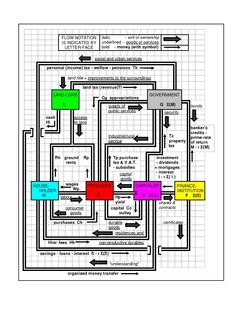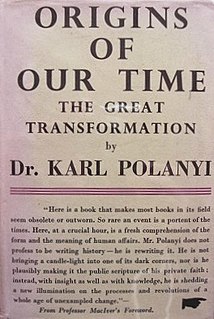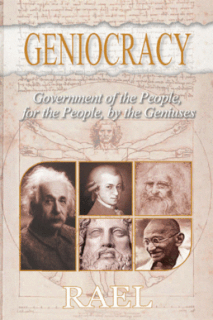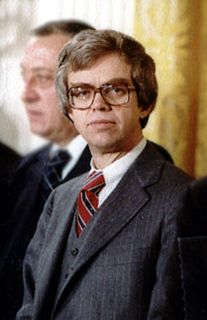The Speenhamland system, also known as the Berkshire Bread Act was a form of outdoor relief intended to mitigate rural poverty in England and Wales at the end of the 18th century and during the early 19th century. The law was an amendment to the Elizabethan Poor Law. It was created as an indirect result of Britain’s involvements in the French Revolutionary and Napoleonic Wars (1793–1815).

Equality of outcome, equality of condition, or equality of results is a political concept which is central to some political ideologies and is used regularly in political discourse, often in contrast to the term equality of opportunity. It describes a state in which people have approximately the same material wealth and income, or in which the general economic conditions of their lives are alike. Achieving equal results generally entails reducing or eliminating material inequalities between individuals or households in a society and usually involves a transfer of income or wealth from wealthier to poorer individuals, or adopting other measures to promote equality of condition. A related way of defining equality of outcome is to think of it as "equality in the central and valuable things in life". One account in the Journal of Political Philosophy suggested that the term meant "equalising where people end up rather than where or how they begin", but described this sense of the term as "simplistic" since it failed to identify what was supposed to be made equal.
Guaranteed minimum income (GMI), also called minimum income, is a system of social welfare provision that guarantees that all citizens or families have an income sufficient to live on, provided they meet certain conditions. Eligibility is typically determined by citizenship, a means test, and either availability for the labour market or a willingness to perform community services. The primary goal of a guaranteed minimum income is to reduce poverty. If citizenship is the only requirement, the system turns into a universal basic income.

An economic system is a system of production, resource allocation and distribution of goods and services within a society or a given geographic area. It includes the combination of the various institutions, agencies, entities, decision-making processes and patterns of consumption that comprise the economic structure of a given community. As such, an economic system is a type of social system. The mode of production is a related concept. All economic systems have three basic questions to ask: what to produce, how to produce and in what quantities and who receives the output of production.

News from Nowhere (1890) is a classic work combining utopian socialism and soft science fiction written by the artist, designer and socialist pioneer William Morris. It was first published in serial form in the Commonweal journal beginning on 11 January 1890. In the novel, the narrator, William Guest, falls asleep after returning from a meeting of the Socialist League and awakes to find himself in a future society based on common ownership and democratic control of the means of production. In this society there is no private property, no big cities, no authority, no monetary system, no divorce, no courts, no prisons, and no class systems. This agrarian society functions simply because the people find pleasure in nature, and therefore they find pleasure in their work.
Post-scarcity is a theoretical economic situation in which most goods can be produced in great abundance with minimal human labor needed, so that they become available to all very cheaply or even freely. Post-scarcity does not mean that scarcity has been eliminated for all goods and services, but that all people can easily have their basic survival needs met along with some significant proportion of their desires for goods and services. Writers on the topic often emphasize that some commodities will remain scarce in a post-scarcity society.

The Great Transformation is a book by Karl Polanyi, a Hungarian-American political economist. First published in 1944 by Farrar & Rinehart, it deals with the social and political upheavals that took place in England during the rise of the market economy. Polanyi contends that the modern market economy and the modern nation-state should be understood not as discrete elements but as the single human invention he calls the "Market Society".
Post-capitalism includes a number of proposals for a new economic system to replace capitalism, examine more advanced forms, or otherwise speculate on the fate of the current form of the social order. According to some classical Marxist and some social evolutionary theories, post-capitalist societies may come about as a result of spontaneous evolution as capitalism becomes obsolete. Others propose models to intentionally replace capitalism. The most notable among them are socialism and anarchism.

Economic humanitarianism is a collection of economic ideas which according to its creator Raël is designed to complement Geniocracy.

Martin Anderson was an economist, policy analyst, author and one of President Ronald Reagan's leading advisors.
The Spirit of Democratic Capitalism is a 1982 book by philosopher Michael Novak, in which Novak aims to understand and analyze the theological assumptions of democratic capitalism, its spirit, it values, and its intentions. Novak defines democratic capitalism as a pluralistic social system that contrasts with the unitary state of the traditional society and the modern socialist state. He analyzes it as a differentiation of society into three power centers: a political sector, an economic sector, and a moral-cultural sector. Each sector needs the others. Democracy needs the market economy and both need a pluralistic liberal culture. Against the continuing growth of democratic capitalism, modern socialism has contracted from a robust utopian program into vague “idealism about equality” and overwrought criticism of capitalism, most notably in the “liberation theology” of Latin America. Novak ends with the “beginnings of a theological perspective on democratic capitalism” illuminated by the journey from Marxism to realism of Reinhold Niebuhr.

Technological unemployment is the loss of jobs caused by technological change. It is a key type of structural unemployment.

Classless society refers to a society in which no one is born into a social class. Such distinctions of wealth, income, education, culture, or social network might arise and would only be determined by individual experience and achievement in such a society.

Martin Ford is a futurist and author focusing on artificial intelligence and robotics, and the impact of these technologies on the job market, economy and society.
Disclosing New Worlds: Entrepreneurship, Democratic Action, and the Cultivation of Solidarity (1997) is a philosophical proposal intended to restore or energize democracy by social constructionism via an argument style of world disclosure but which philosophy is distinct from:
Basic income and negative income tax, which is a related welfare system, has been debated in the United States since the 1960s, and to a smaller extent also before that. During the 1960s and 1970s a number of experiments with negative income tax were conducted in United States and Canada. In the 1970s another and somewhat related welfare system was introduced instead, the Earned Income Tax Credit. The next big development in the history of basic income in the United States came 1982, when The Permanent Fund of Alaska was established. It has delivered some kind of basic income, financed from the states oil and gas revenues, ever since.


















